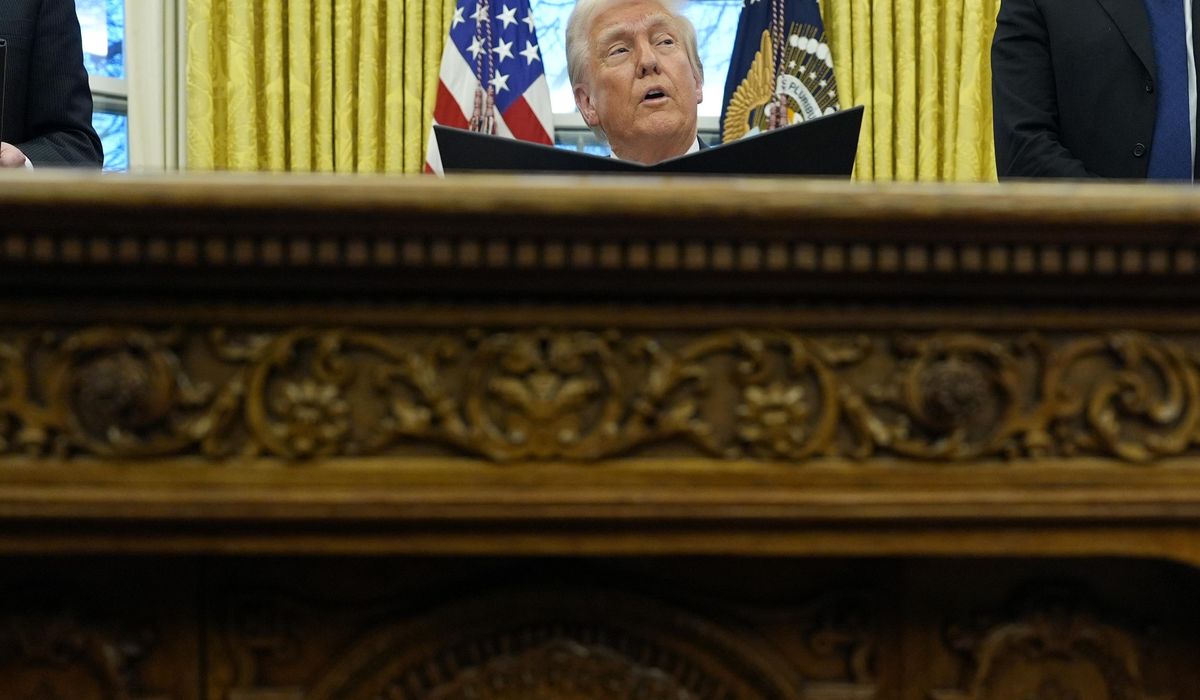


President Trump signed an executive order Monday directing the Justice Department to pause its enforcement of a decades-old law that prohibits American businesses from bribing officials of foreign governments to win or retain business, saying U.S. laws are stricter than those in other countries and it puts the U.S. at a disadvantage.
“It’s going to mean a lot more business for America,” Mr. Trump told reporters in the Oval Office as he signed the order.
The order halts criminal prosecutions under the Foreign Corrupt Practices Act. It also directs Attorney General Pam Bondi to devise “revised, reasonable enforcement guidelines” that won’t hamper American firms competing abroad.
Mr. Trump has argued that the law puts U.S. firms at a disadvantage to overseas rivals because they cannot engage in practices that are common among international competitors. He also said it limits his ability to conduct foreign affairs.
The Justice Department and the Securities and Exchange Commission are tasked with enforcing the law and have specialized prosecutors who handle such cases. Last year, the federal prosecutors filed 30 enforcement actions under the statute, according to data from law firm Gibson Dunn. Often, the cases involve payments made to middlemen by companies or their subsidiaries to secure business.
The 1977 law is aimed at preventing Americans from aiding public corruption that undermines the rule of law in many countries. It bars Americans and certain foreign issuers of securities from bribing foreign officials. In 1998, the law was amended to apply to foreign firms who abet such bribes in the U.S.
SEE ALSO: Trump pardons Rod Blagojevich, calling it an ‘honor’ to do so
The statute applies not only to direct bribes but also to bribes that are offered or authorized by a company’s management.
Both individuals and corporations can be prosecuted under the law. Violators face a maximum of 15 years in prison and a fine of $250,000, or three times the monetary equivalent of the thing of value demanded by the foreign official.
• Jeff Mordock can be reached at jmordock@washingtontimes.com.
